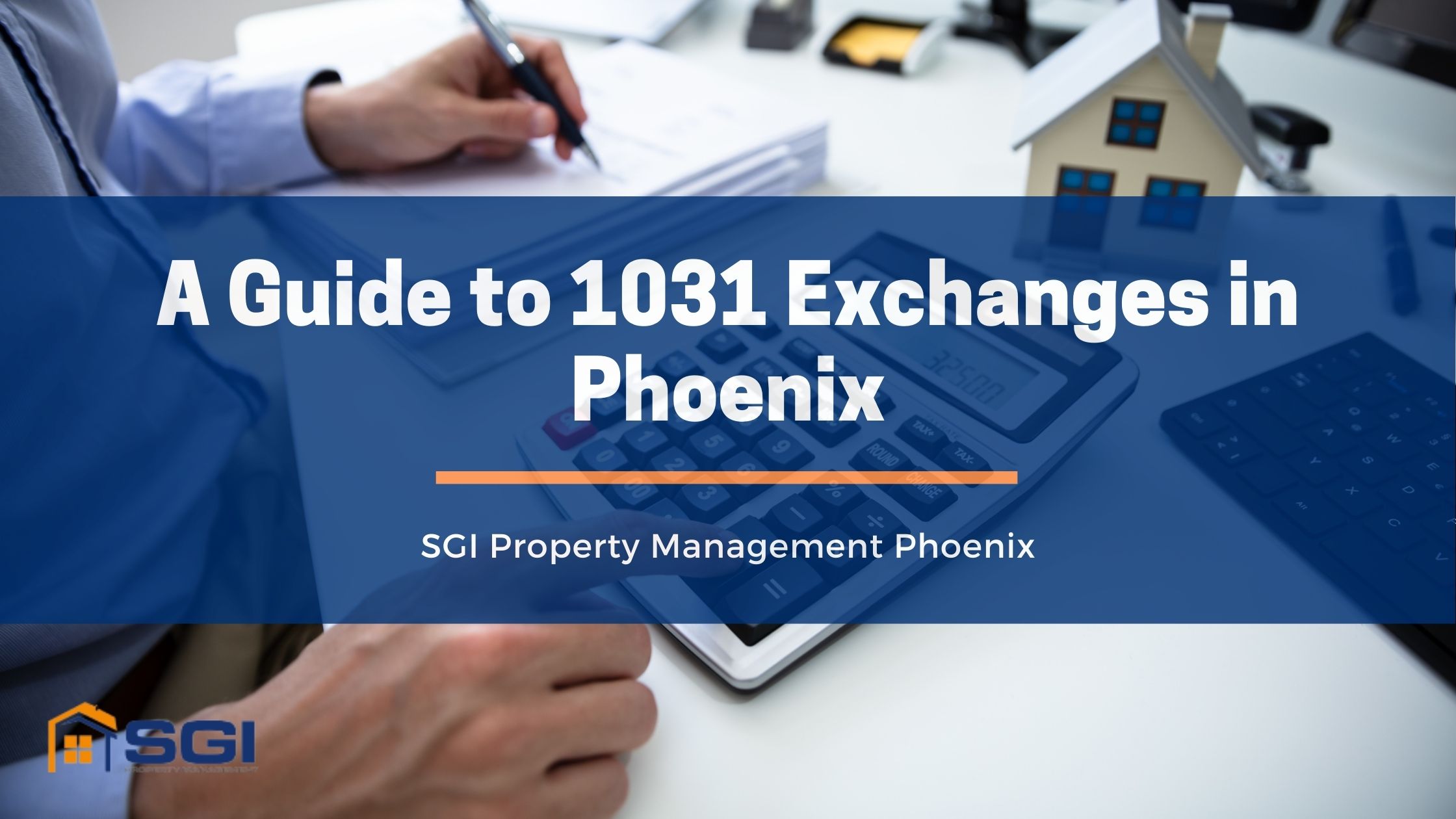
1031 Exchange is also referred to as “like-kind exchange.” It’s a unique and progressive policy under the IRS that allows investors to exchange real property for another real property without paying capital gains tax.
Section 1031 makes clear that the definition of “like-kind” leaves room for some interpretation. A vacant land, for example, is considered like-kind to residential and commercial real estate.
Usually, the IRS requires that real estate investors sell their rental property and part ways with anywhere from around 15 to 30 percent in capital gains taxes. But with the 1031 exchange, clients will be able to save that amount in capital gains taxes as long as they follow all IRS rules meticulously.
What’s more, there is no limit to how many like-kind exchanges you can make. Resultantly, you may be able to build considerable wealth over time and limit your tax liability as you defer paying taxes for capital gains. The following is a guide to any 1031 exchange in Phoenix.
What Type of Property Qualifies for 1031 Treatment?
Not all properties qualify under Section 1031 of the Internal Revenue Code. Only a business or investment property qualify for a 1031 exchange. Your Phoenix home, or any sort of personal property, would therefore are not exempt from capital gains taxes. The same goes for investment properties bought for fixing and flipping. That’s because it’s an investment property an owner buys solely for the reason of reselling it.
Also, second or vacation homes don’t qualify for a 1031 exchange if they are not held for rental purposes. Other properties that don’t qualify for a 1031 exchange include the following:
- Notes
- Bonds
- Stocks
- Partnership shares

To qualify for a 1031 exchange and avoid paying capital gains tax, the transaction must take the form of an ‘exchange’ and not simply a sale of a real estate property. Essentially, this transaction must be for business or investment property purposes. Examples of qualifying exchanges for business or investment purposes include the following:
- Exchanging a shopping center for raw land
- Exchanging an office for a farm
- Swapping an office building for a parcel of land
- Swapping an industrial building for an apartment complex
- Exchanging raw land for a single-family home
What are the Deadlines for Completing a 1031 Exchange?
Before the Tax Reform Act of 1984, exchanges used to occur simultaneously. This, however, brought complications such as difficulties in the simultaneous transfer of funds and titles, among other things. The delayed 1031 exchange gives a real estate investor more time when it comes to the sale of the relinquished properties and the purchase of replacement properties.
Anyone investing in a 1031 exchange will first need to list and advertise their investment property for sale. Then, if the marketing is successful, will have a qualified intermediary (QI) execute the sale contract on their behalf.
A qualified intermediary is an independent entity that facilitates the transfer of funds in exchange. This requirement by the IRS eliminates the ability to complete an exchange without assistance. A qualified intermediary can be a real estate attorney, a CPA, or even a bank.

The following are the roles of a qualified intermediary in a 1031 exchange:
- Obtain the real estate property that you’re relinquishing
- Handle the transfer process to the new buyer
- Obtain the replacement property from the seller, and hand the transfer over to you
- Offer their support to you throughout the 1031 exchange
- Ensure that the process follows the strict deadlines imposed by the IRS
- Prepare the legal paperwork and tax documentation
- Handle all sale proceeds’ deposits and disbursements
There are two deadlines that real estate investors conducting a 1031 Exchange must abide by:
The 45-day Rule
You’ll have exactly 45 days to identify a replacement property from the time you have closed on and transferred the old property. The identification for it must be documented in writing.
This time period isn’t negotiable and includes both holidays and weekends. If, for whatever reason you exceed this deadline, the entire exchange cannot go on. And consequently, capital gains taxes are sure to follow.
You can identify up to 3 properties without any regard to their market value. Alternatively, you can identify one or more properties so long as the aggregate market value does not exceed twice the old property’s fair market value.
The 180-day Rule
This other deadline has to do with the replacement property. You’ll have approximately 180 days from the day you have transferred the old property to the new buyer to close on the new property.

Just like the 45-Day Rule, there are no extensions or exceptions with the 180-Day Rule. Once you have identified your replacement properties you’ll have (180-45=135 days) to close them.
What is “Boot” in Like-kind Exchanges?
Realistically speaking, clients who partake in a 1031 Exchange do so in order to defer capital gains taxes. You'll eventually have to pay taxes on those gains However, that cannot happen if there is a “boot” involved.
Boot refers to a non-like-kind property that’s obtained in exchange. In other words, it’s the number of proceeds that an investor fails to reinvest in a replacement property. It can occur in a myriad of ways, including the following:
- Including a non-qualified property as “like-kind.” For example, purchasing a property that also includes the seller’s valuable art collection. A valuable art collection can also be considered personal property.
- Servicing non-transactional costs using sales proceeds in a 1031 Exchange. Examples include tenant security deposits, prorated rent, or outstanding bills
- Having less debt on the replacement than on the relinquished property
- Failing to transfer the entire sales proceeds from the old property to facilitate the acquisition of the new property
What Other Types of 1031 Exchanges are Allowed Under Section 1031 of the IRS Code?
There are other types of like-kind exchanges other than delayed exchanges. They are as follows:

- Reverse Exchanges - This occurs when the acquisition of the replacement property is done prior to the sale of the relinquished property.
- Improvement Exchanges - With this 1031 exchange method, an investor can make improvements using the equity they have generated from the exchange. This can significantly increase the market value of the acquired property.
- Simultaneous Exchanges - This is the oldest of any 1031 exchange methods. Two investors meet and simultaneously exchange deeds and an ownership interest in their real estate properties.
Bottom Line
Rental property owners can use a 1031 exchange to not only avoid paying capital gains taxes, but they can grow their investment portfolio and boost their passive income as well. However, for you to realize such gains, you must get the process right. If you would like help managing your real estate investments, contact an expert today.
SGI Property Management Phoenix understands the ins and outs of the Phoenix real estate industry. Get in touch to learn more about our property management services!









